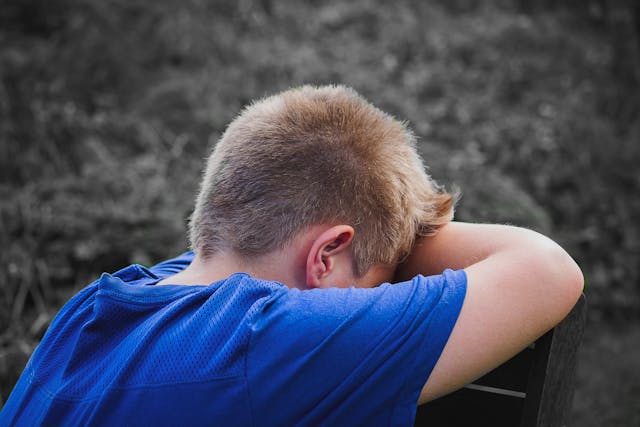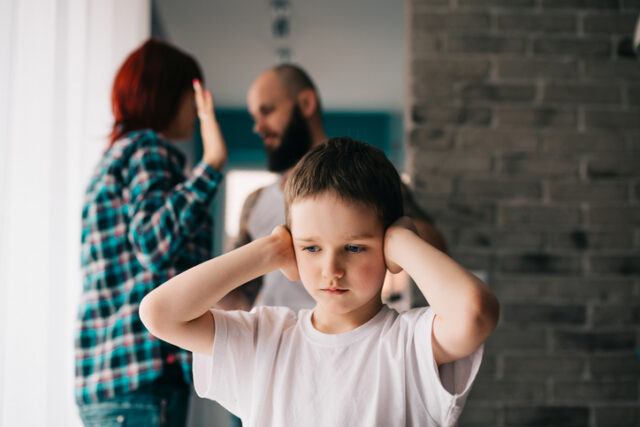You know by now that your childhood informs your adulthood in some pretty major ways.

Growing up in an environment where love was absent or inconsistent can leave lasting effects that stay with you for a very long time, often in ways we don’t immediately recognise. These habits are often rooted in a need for protection, a fear of vulnerability, or a desire to cope with unmet emotional needs. Either way, if you recognise yourself in these patterns, they might be able to be traced back to your youth.
1. You find it really hard to trust anyone.

When love and security were absent in childhood, trusting people in adulthood can feel risky. You may constantly fear being let down or betrayed. All that mistrust can lead to keeping people at a distance, even when you crave connection. Building trust feels like a slow, uphill battle, and letting your guard down may seem impossible.
2. You need constant validation and reassurance.
 Source: Unsplash
Source: Unsplash If you didn’t receive love and affirmation growing up, you may find yourself looking for validation from other people as an adult. Compliments, recognition, or approval can temporarily fill the void, but the need feels endless. Relying on external validation to feel worthy can lead to insecurity and emotional exhaustion.
3. You have difficulty expressing emotions.

Growing up in an unloving environment might have taught you to suppress your feelings to avoid rejection or criticism. As an adult, expressing vulnerability or discussing emotions can feel uncomfortable or even dangerous. You may struggle to let people know when you’re hurt, happy, or in need, keeping your feelings bottled up instead.
4. You over-apologise for everything.

If you grew up feeling unloved, you may have learned to apologise for your existence or actions, even when it’s not necessary. Over-apologising is often rooted in a fear of upsetting anyone or being rejected. It becomes a default habit, even when you haven’t done anything wrong.
5. You fear abandonment in relationships.
 Source: Unsplash
Source: Unsplash A lack of love in childhood can create a deep fear of abandonment in adulthood. You may cling tightly to relationships, constantly worrying that people will leave you. This fear can lead to anxiety, possessiveness, or staying in unhealthy relationships to avoid being alone.
6. You have trouble setting boundaries.

Without a foundation of love and respect, setting boundaries can feel confusing or selfish. You might say “yes” when you want to say “no,” fearing rejection if you assert your needs. The thing is, neglecting your own limits often leads to burnout, resentment, and feeling taken advantage of.
7. You engage in self-sabotaging behaviours.

When you grow up believing you’re unworthy of love, you may unconsciously sabotage good opportunities or relationships. Success or happiness might feel unfamiliar or undeserved. This can result in procrastination, quitting too soon, or pushing people away just as things start to go well.
8. You have low self-esteem.

A childhood without love often damages self-worth. As an adult, you may feel you’re not good enough, smart enough, or lovable enough. These feelings can affect your relationships, career, and overall confidence. Even achievements may feel hollow because deep down, you struggle to believe in your own value.
9. You struggle to accept love and kindness.

If love was absent or conditional growing up, genuine acts of love or kindness may feel suspicious or undeserved. You might question people’s motives or feel uncomfortable when they show care. Accepting affection can feel like a challenge because it doesn’t align with your early experiences.
10. You’re hyper-independent.

Relying on people might have felt unsafe in your childhood, so you learned to rely solely on yourself. In adulthood, your hyper-independence can make it really hard to ask for help or lean on anyone. While independence is a strength, refusing support can leave you feeling isolated and exhausted.
11. You struggle with perfectionism.

Trying to be perfect can be a way to compensate for feeling unloved or inadequate. You may believe that if you’re flawless, you’ll finally earn love and acceptance. The drive for perfection often leads to stress, anxiety, and never feeling satisfied with yourself, no matter how much you achieve.
12. You avoid confrontation at all costs.

Growing up in an unloving or unpredictable environment may have made confrontation feel dangerous. As an adult, you may go out of your way to avoid conflict, even when it means suppressing your own needs or opinions. This habit can result in feeling unheard, undervalued, or resentful.
13. You struggle with intimacy.

Emotional and physical intimacy requires vulnerability, which can feel terrifying if you grew up without love. You might keep your partners at arm’s length or shut down when things get too close. Struggling with intimacy can create barriers to forming deep, meaningful connections.
14. You have a fear of failure.

Without a loving foundation, failure might feel like proof of your unworthiness. As a result, you may avoid taking risks, trying new things, or pursuing goals for fear of falling short. The fear of failure can hold you back from growth and opportunities.
15. You dismiss your own achievements.

Even when you accomplish something significant, you may downplay or dismiss it. This comes from an ingrained belief that you’re not worthy of praise or success. Instead of celebrating wins, you might attribute them to luck or convince yourself they don’t matter.
16. You struggle with people-pleasing.

Trying to make everyone happy can be a way to seek love and approval that was missing in childhood. You may go out of your way to meet other people’s needs, even at the expense of your own well-being. That constant people-pleasing can leave you feeling drained, unappreciated, and disconnected from your true self.




